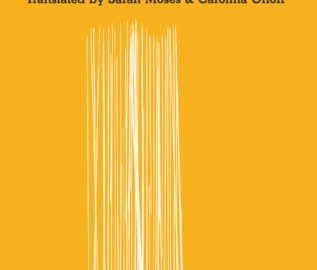 Book: Négar Djavadi’s Désorientale (2016), winner of numerous French and international book prizes; translated into English by Tina Kover as Disoriental (2018) for Europa Editions.
Book: Négar Djavadi’s Désorientale (2016), winner of numerous French and international book prizes; translated into English by Tina Kover as Disoriental (2018) for Europa Editions.
Accuracy: The book’s primary narrator, Kimiâ, switches between at least three different narratives: the troubled history of her Iranian family all the way back to her paternal grandmother’s birth in a remote Persian harem near the Caspian Sea; her family’s afterlife in Paris as refugees from the Iranian Revolution, including Kimiâ’s gradual recognition of her own sexuality; and the only narrative set in real time, the French fertility clinic where she anxiously waits to be called for artificial insemination. This last storyline punctuates and ultimately determines the novel’s course. Kimiâ’s attitude to reproductive technology is compulsively written, varying from forensic to whimsical. Two examples:
While she’s inserting the tube, Dr Gautier explains to me that she’s depositing the sperm cells directly into my fallopian tubes, sparing them a large part of the journey. I’m concentrating on my breathing, and register the information only as a scientific fact of which I was previously unaware. “Directly into the fallopian tubes”, like those passengers who they let straight onto the airplane without going through all the formalities.
and
No hand to hold. [..] Just this long cardboard tube […] sitting on my knees. A long tube filled with Pierre’s defrosted, washed sperm (that’s how Dr Gautier described it to me). I can never imagine how, by what process, sperm could be washed. Every time I try, I get a picture in my head of a big sieve, like the one my maternal grandmother Emma used when she baked cakes.
If you’ve ever wondered what it feels like to schlep around the wards of a large French  hospital, sitting alone while eyeing up (and being watched by) nervous couples elsewhere in the same queue, clutching a plastic tube of defrosted sperm, Disoriental is as accurate as it gets. CECOS, the clinic where Kimiâ and her gametes spend so much time, is a real place, open for donations.
hospital, sitting alone while eyeing up (and being watched by) nervous couples elsewhere in the same queue, clutching a plastic tube of defrosted sperm, Disoriental is as accurate as it gets. CECOS, the clinic where Kimiâ and her gametes spend so much time, is a real place, open for donations.

Style: Daringly full of allusions, from pop culture to Iranian history (to the extent of annoying the New York Times’ reviewer). It’s sentimental, sometimes appallingly tragic, but also fast-paced, funny, and ironic.
Empathy: Almost entirely told or focalized by female characters, none of Disoriental‘s core narratives stray far from death or childbirth (or both at the same time). Importantly, Djavadi also relates different forms of male experience: the lifelong estrangement of Kimiâ’s closeted gay uncle; the father who acknowledges an illegitimate son at the cost of his reputation; the father who treats his unexpected daughter like a son. The ruling parallel between biological reproduction and emotional re-integration is obvious enough to be tired, but Djavadi handles it with sensitivity and conviction.

The Pregnancy Test’s Verdict: A positive result in more ways than one. Disoriental is a very modern book; Tina Kover was previously best known as a translator of 19th century French classics, including Georges Sand, the Goncourt brothers, and Dumas père. Not an obvious author-translator pairing, but one that germinated into a compellingly written novel.

